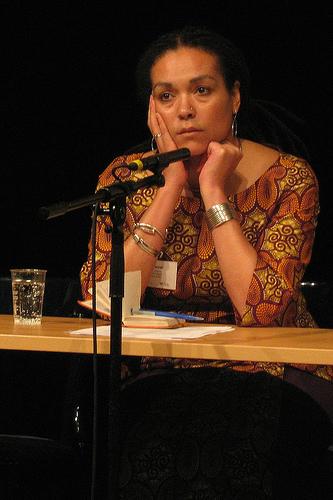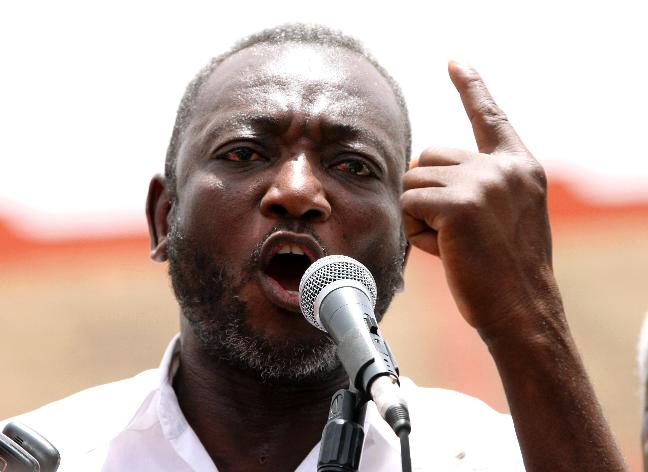On the Global Constitutional Meaning of an Indictment of Bashir
The argument presented here is that through nothing more than the simple invocation of basic principles of law and criminal justice necessarily associated with criminal court proceeding, the new global tribunals are enacting a dramatic re-alignment in the global balance of powers, a re-alignment about which we ought to have serious concerns. In the case of an ICC indictment of Omar al Bashir, for example, it must be remembered that this would have to be based on a special jurisdiction created by the Security Council under its Chapter VII powers, and that this””it is argued here””would have the effect of significantly enhancing the power of the Security Council, both in relation to the other bodies of the UN and in relation to the future independence of the ICC. More generally, it is argued that even the apparently simple choice to use global criminal tribunals is fraught with profound, and little understood consequences, and that, therefore, the choice to prosecute Bashir before the ICC will significantly further a deep and radical realignment in the global order, one associated, in particular, with a growing tendency to strip law of any relationship to democratic legitimacy or oversight.
In considering the question of how to think about the possibility of the ICC bringing an indictment against Sudan’s President, Omar al Bashir, it would be useful, as a starting point, to ask what the global constitutional implications of this would be? In so doing, we should not make the mistake, so common to formalist modern political and legal thought, of forgetting that the absence of a formal global constitution””the absence of a document””does not mean that there are no organizing rules, nor that those organizing rules do not add up to some kind of proper global order.
The fact is that, in the absence of a formal written constitution, what we might call the global material constitution operates according to general principles of law and legality which have their origin in the tradition of Roman law””and first among these is the authority given to what we moderns call precedent (an institution which operates, incidentally, on the same form of authority as the Roman form of tradition and history). Unlike mere custom, what this means is that those past and present practices which can successfully claim to be a continuation of the law’s founding principles become determinative for future (constitutional) practice. It also means that the very terms of the global constitution, in which we will all live in the future, are already being determined by the particular form which global legal practice is taking today. Put simply, in constitutional terms, for a system based on legality alone, precedents are the constitutional order, and what this means in practice is that””through nothing more than the simple invocation of law and basic principles of legality””it is possible to fundamentally re-organize the global material constitution, without any kind of clear understanding of what is at stake, or any clearly established mechanisms for constitutional amendments, much less any means to try to link to any kind of meaningful democratic legitimacy or oversight.
If this is so, the decision to indict and prosecute Bashir through the ICC raises three critical constitutional questions:
I. First, what does it mean for future global constitutional precedent that the legal power to prosecute in Sudan would have to be based upon the power of the Security Council, as opposed to being based upon the collective power of the States parties to the Rome Statute treaty which created the ICC (much less on any kind of real democratic legitimacy)? Recall, of course, that the ICC and its prosecutor have jurisdiction only over states which have signed and ratified the Rome Statute. Since Sudan has not done so, the only alternative is for the Security Council to invoke its powers under Chapter VII of the UN Charter which allow it to use “force” to keep “peace and security” in order to create what will be, in effect, a new ad hoc Tribunal, this time for Darfur (though it would be within the legal and institutional structures of the ICC). This is the same basis as that used for both the ICTY and ICTR, but before that the Security Council had never claimed the power to create a court with full judicial powers.
Though little is being said about these constitutional implications in the context of Sudan, at that time of the creation of the ICTY even the Security Council itself explicitly acknowledged that using a treaty (not Chapter VII) was the “preferred” method to create an ad hoc tribunal. Then, as now, the question arises as to what are the constitutional implications of the fact that the basis for the power to punish wrong-doers is being taken from what amounts to the UN system’s state of exception provision””the power of the Security Council to exercise force (the same constitutional basis, it need hardly be said, on which the invasion of Iraq was based), as opposed to the collective representative power of the state signatories to the Rome Statute? Note, too, that it is not even an option to have the General Assembly create the mandate for Sudan, because (according to both the UN Charter and international law) that body does not possess the power to create a court of any kind, to use force, or to compel states to action. Still, at the time of the creation of the ICTY, several proposals in the Security Council (by the representatives of Brazil and of Sweden (on behalf of the CSCE)) were made which sought ways to get the GA to officially sign off on what the Security Council was doing, but those arguments were bypassed in the context of what was seen as a pressing crisis in the former Yugoslavia (see emphasis by Brazil and others). Nor does this concern appear to be part of the Security Council’s debates on indictments in Sudan, even though these same issues raise dramatic new questions about the fairness and legality of the whole project of the ICC itself when it is being asked to simultaneous play two perhaps contradictory constitutional roles””one as an independent court and the other as effectively another ad hoc Tribunal acting as an expression of Security Council power?
Ultimately, then, we need to recognize, as many international lawyers certainly did at the time (including the SC representatives of Brazil and Sweden/CSCE), that the ICTY was created, that the constitutional precedent established by an ICC indictment of Bashir would have the effect of dramatically enhancing the power of the Security Council on at least three distinct levels. First, within the terms of the UN system, it must be remembered that before the ICTY ad ICTR the Security Council had never claimed to have the power to create a proper judicial power. Both of those tribunals were temporary, so, should the Security Council invoke this same Chapter VII power in order to create ICC jurisdiction for Sudan, it would have to be understood””constitutional””as the first time the Security Council was claiming the power to create judicial power for a permanent tribunal. In sum, this must be understood as both a claim to a wholly new type of global power, and, as such, as a dramatic re-alignment in the balance of power accorded by the UN Charter to the various UN bodies (especially the General Assembly and the International Court of Justice). Second, beyond the UN system, the ICC’s prosecution of cases on behalf of the Security Council will serve as a strong future precedent towards increasing Security Council (and UN) supremacy over the state treaty-based ICC (and other non-UN bodies). Finally, at the level of constitutional principle, the Security Council’s invocation of this new power will stand as a precedent throughout the global sphere that judicial power may be understood as nothing but a derivative of executive power (the Security Council), a power that the constituent and legislative power cannot exercise (e.g. of states, or the General Assembly).
II. The second constitutional question raised by the ICC has to do with its implications for the profound global constitutional re-organization begun when, for the first time the ICTY exercised global individual criminal jurisdiction (and represented by the now famous Tadic appeals decision). By now, we are all pretty much aware of the argument that there are two great systematic models which have formed the basis for international and global institutions””one strictly international and statist, the other global and legalistic. Standard accounts of the development of global criminal law tend to argue that there is a common ground between these two visions in which states can be made more legalistic and accountable, while still retaining their sovereignty. The fact is, however, that these two visions are fundamentally incompatible, and that the invocation of legality at the interstate level has operated as nothing so much as the solvent of state sovereignty. This argument is not mine alone, however, it is also that of prominent international law scholar and jurist Antonio Cassese, the first president of the ICTY, author of the Tadic decision, and in many ways the father of the new global criminal tribunals.
Constitutionally, the crux of this argument hinges on the implications of a remarkably under-theorized element of the new global tribunals””that individuals are now the subjects (and apparently the sole subjects) of global criminal law. To most observers of the ICTY and ICTR, this was, if anything, not an especially problematic transformation. After all, hadn’t the Nuremburg tribunal apparently done the same thing more than half a century before? The problem is that using Nuremburg as a precedent presumes that it makes no difference for law and its future development whether judicial and police powers are exercised in an entirely new sphere (i.e. international) by entities that had done so in other contexts for centuries (i.e. by a group of states (the Allied powers), or whether those powers were to be exercised against individuals for the first time in history and in the name of something called “The Tribunal”.
To understand what is really at stake in this transition constitutionally, we need to recall that all previous international law and legal agreements were based in””and acted to enact and institute–the state system. In fact, even those projects (e.g. human rights) that perhaps initially appear to be limitations put on sovereignty were really limits put on states by states. What changed with the ICTY (and this will be true for the ICC, as well) is that, when individuals became the sole subject of this new global criminal law, for the first time trans-state law operated on a set of principles (global criminal jurisdiction and individual criminal jurisdiction) which were no longer based in the logic of the state system because they broke, for the first time, the States’ monopoly on the right to represent their citizens in the global sphere. This obviously has profoundly reorganized the global material constitution, but, as Cassese understood, this is only the beginning of the process. This is because, as soon as global law begins recognizing a basic set of individual responsibilities and obligations to this new global power, basic requirements of justice and fairness for defendants (extrapolated from domestic understandings of law) will require that global law also begins to offer””and thus becomes the source of””the full corpus of basic rights and protections that modern state-based legality views as the necessary cognates to criminal responsibility, and creating in the process, for the first time, a real and direct political relationship between global law and individuals.
Nor can this new relationship coexist with state sovereignty, nor even the primacy of the state as the basis for an individuals legal rights, because for global law to ever have been able to intercede in a state (as it was in the case of the former Yugoslavia), it will have to have been recognized as legally superior to all state law. Conceptually, this is as simple as understanding that if the ethical horizon of the new global law is the best interests of a world community, no state’s interest (nor anything else for that matter) can, by definition, stand against it.
In conclusion, then, what is ultimately at stake in Ocampo’s potential indictment of Bashir is that””through the invocation of the apparently neutral language of law and of courts, and through the apparent moral necessity posed by the very real crises to which these institutions are directed””a fundamental global constitutional re-organization is taking place, and taking place without much explicit discussion of what is really at stake. Beyond the perhaps initially appealing arguments for the priority of law to sovereignty and of universal ethics to local, we are witnessing at this very moment in world history the extrapolation of the (domestic) idea of law to the global sphere, and, yet, this is law with a difference””law shorn of every relationship (conceptual, constitutional or institutional) to democratic legitimacy or accountability. Law, that is to say, shorn of every historical connection to democratic communities, with the end result being that the new global constitution will be based on the priority of global law to every democracy. Nor is this the first time we have seen this problem: This has been the greatest reason for the failure of the European Union project, even as that body is substantially more democratic that anything that global law can offer.
Ronald C. Jennings has worked as an international human rights lawyer and is currently completing a PhD dissertation in Anthropology at Columbia University.







I just could not understand the point of Roland Jennings: Why should Bashir be indited? To serve justice or to boost the powers of the security council? If it is for serving justice, the urgent priority is settling the crisis in Darfur. It is indeed sad that at times one feels that efforts of peaceful settlements are deliberately obstructed by questionable desires to serve justice, and one wonders whose interests that justice serves. International mumbo-jumbo aside, adopting purely legal perspectives to deal with political crises does not speak to the social and political reality of our times.
But perhaps the security council is in real need to boost its powers through the indictment of Bashir. What a pity!
to the previous commenter,
jennings (ronald) is simply saying that if you are going to use a security-council-based law tribunal as one of your methods for attending to the crisis in darfur, you should realize the larger implications, both for now and the future. his point is about responsibility: let’s keep our eyes open and make an informed decision if we are to act. considering the stakes, i can hardly see how one could disagree.
To watch over the implications and monitor responsibility are of course matters to take into account for gauging the extent of power of excution availed in a complexity of jurisdiction versus detriment. That said priorities do not elect as the centre of proxy for a better world to live as demanded by the reality of global interdependability. Democratic sovereignty, is as Jennings has suggested a temporarily substitution of ad hoc judiciary measures is one way of realistically enhancing a collation of unified opinion along the ethical ceilings beginning to take formal legal recognition